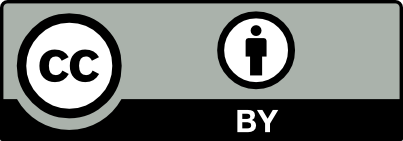Perspectives and regulatory challenges for the application of stem cells in alternative methods to animal testing
DOI:
https://doi.org/10.22239/2317-269X.01076Keywords:
Stem Cells, Biotechnology, Health Legislation, Regulation, Alternative MethodsAbstract
Introduction: The use of stem cells for toxicological evaluations seems to be a promising strategy since it allows a greater prediction of human effects. However, in Brazil, there is no specific legislation regulating the use of stem cells for non-therapeutic purposes, technological development, diagnosis or as an alternative method to animal testing. Objective: To review the literature and to provide an overview of the current situation of the non-therapeutic use of stem cells in Brazil and in the world. Method: A non-systematic bibliographic survey was carried out bringing together scientific articles and legislation. Results: This review brings the current approach of Brazilian legislation regarding the non-therapeutic use of human material and briefly discusses international regulatory approaches that allow the non-therapeutic use of stem cells. On the other hand, the Brazilian legislation for use of blood and blood products is quite broad and mature and could serve as a model for the non-therapeutic use of stem cells or other materials of human origin. Conclusions: The encouragement of the debate by the interested bodies and entities is the first step to initiate the development of specific legislation that could allow the scientific and technological development of Brazil in order to follow the world’s biotechnological advances.Downloads
Downloads
Published
Issue
Section
License
Copyright (c) 2018 Health Surveillance under Debate: Society, Science & Technology (Vigilância Sanitária em Debate: Sociedade, Ciência & Tecnología) – “Visa em Debate”

This work is licensed under a Creative Commons Attribution-NonCommercial-NoDerivatives 4.0 International License.
COPYRIGHT ALLOWANCE The author (s) hereinafter designated as the ASSIGNOR hereby assign and transfer, free of charge, the ownership of the copyrights related to this ARTICLE to the Vigilância Sanitária em Debate: Sociedade, Ciência & Tecnologia (Health Surveillance under Debate: Society, Science & Technology) – Visa em Debate, represented by FUNDAÇÃO OSWALDO CRUZ, established at Av. Brasil, nº 4365, Manguinhos, Rio de Janeiro, RJ, Brazil, CEP 21045-900, under the conditions set out below: (a) The terms and conditions set forth in this Agreement shall apply to the following: 1. The ASSIGNOR declares that they s(he) is (are) the author (s) and owner (s) of the copyrighted property of the ARTICLE submitted. 2. The ASSIGNOR declares that the ARTICLE does not infringe the copyrights and / or other property rights of third parties, that the disclosure of images (if any) has been authorized and that they s(he) assume(s) full moral and / or property liability for its content, before third parties. 3. THE ASSIGNOR assigns and transfers all copyrights relating to the ARTICLE to the ASSIGNEE, especially the rights of editing, publication, translation into another language and reproduction by any process or technique. The ASSIGNEE becomes the exclusive owner of the rights related to the ARTICLE, and any reproduction, totally or partially, is prohibited in any other means of publicity, printed or electronic, without prior written authorization from the ASSIGNEE. 4. The assignment is free and, therefore, there will be no remuneration for the use of the ARTICLE by the ASSIGNEE.







